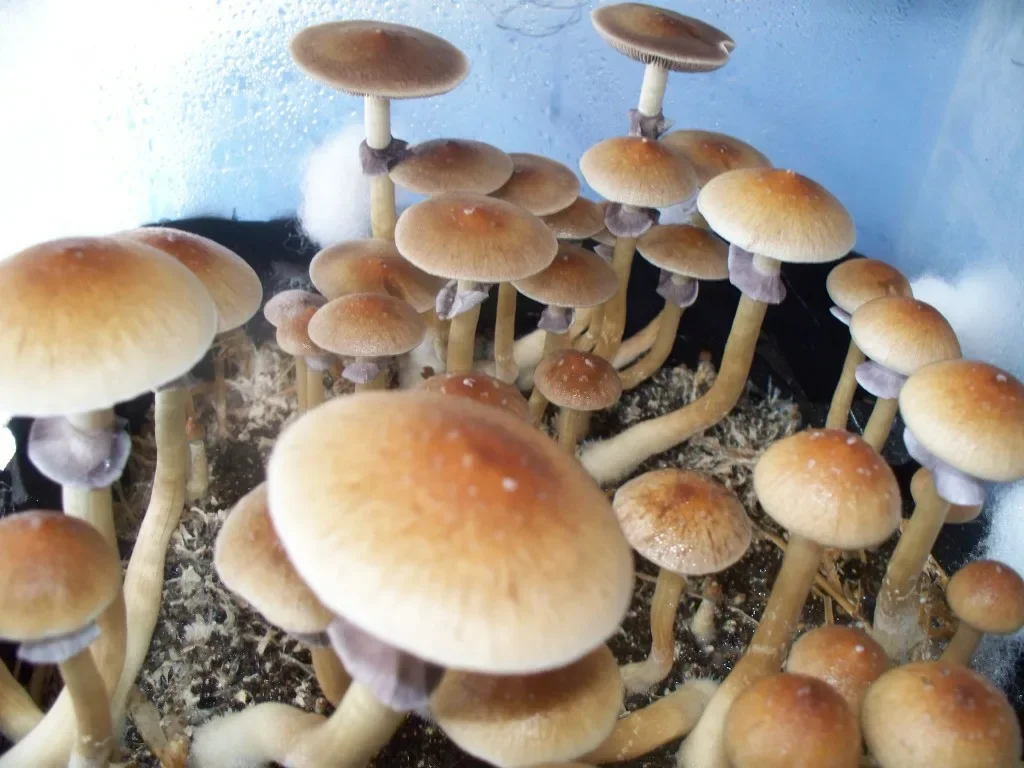Psychedelics Research and Psilocybin Therapy: A Gentle Exploration of Hope and Healing
Ever wondered if you've tried everything, and nothing has worked?
Sick of cycling through treatments, pills, and counsel, and getting nowhere?
If this describes you, you're part of a larger group.
You should know that a new chapter in mental health care has begun!
One based on science, compassion, and an openness to rethink healing.
Welcome to the world of learning about psychedelics and psilocybin therapy. A place that is quietly helping people, not with euphoria, but with hope.
What is Psilocybin Therapy?
Some mushrooms naturally contain a drug called psilocybin, which many know as "magic mushrooms."
People have long recognized its ability to shift perception, but now scientists are studying its healing potential, especially for mental illness.
In controlled, therapeutic settings, qualified professionals guide psilocybin therapy sessions that can transform mental health.
Please Note: Therapists don’t refer this drug to escape reality, but to deepen understanding, as a means of gaining a deeper understanding of life!
People struggling with:
Treatment-resistant depression
PTSD
Addiction
Anxiety
Severe sorrow
Now enjoy moments of peace, compassion, and connection that they never thought possible.
What Does the Research Say?
Over the past decade, institutions such as Johns Hopkins, Imperial College London, and MAPS (Multidisciplinary Association for Psychedelic Studies) have revived public interest in psychedelics.
Their research indicates promising findings:
Psilocybin therapy often reduces symptoms of major depressive disorder, and the effect usually continues after just one or two sessions.
In cancer patients with end-of-life distress, psilocybin brought about deep emotional acceptance and peace.
For others battling addiction, it offered not only relief, but also meaning.
The most intense component? Most describe it as one of the most significant experiences of their lives. A "reset" that helped them reconnect with themselves, others, and the world.
Why Are Psychedelics in the Limelight Now?
It's not just about new stuff.
People want more than Band-Aid solutions such as pills and quick appointments.
People want to understand their pain, not just mask it.
They want to heal, not just "manage."
Psychedelics, when used in a professional, ethical, and responsible way, seem to offer that missing element.
But they're not a magical pill. They're a tool, and like any powerful tool, people must guide, prepare, and integrate them carefully.
What makes psilocybin therapy unique?
Unlike regular medications, psilocybin therapy doesn’t rely on long-term use. Instead, most people experience changes in one to three sessions, supported by professional psychotherapy before and after.
What actually makes it stand out:
It's something you sense: Many describe feeling as if they "saw" their depression, trauma, or self-worth differently.
It feels profoundly personal: No two journeys are the same.
It is about inner understanding: Rather than concealing symptoms, it encourages individuals to examine their own minds, usually with great results.
Real People, Real Stories
Let us take a moment and hear from the people who provided the information, those who experienced the trauma and found hope in psychedelic therapy.
"I'd tried EMDR, CBT, and all the rest. None of them touched the problem at its root. My session was like seventy years of therapy packed into six hours. I forgave others I didn't even know I was carrying around."
Emily, 34, ex-school teacher (PTSD):
"I didn't think I could get better. I thought I was broken. But I looked at my younger self and I felt love, not shame. I've been sober for 18 months now and I'm not having a problem with it. I just. feel free."
Jamal, 42 years old, recovering alcoholic:
"It was not strange or wild. It was calm. It felt like I was being cared for. I met my fears and moved past them. I still have tough days, but I no longer fear myself."
Amie: 29, depression and anxiety.
If you have experienced psilocybin therapy and want to share your experience with others, contact us now!
But is Psilocybin Therapy safe?
This is a significant question, and the response is:
“In the proper context, with proper support, clinical trials show psilocybin therapy has a strong safety record.”
Still, this path isn’t right for everyone, especially those with a history of psychosis or bipolar disorder.
That’s why screening and professional support matter so much.
Around the world, most governments still ban psilocybin outside of approved research.
Efforts are being made to change that, but ethical care must always come first.
Why We Need More Research on psilocybin therapy
The early results are exciting, but it’s important to remember:
Researchers still need to understand long-term consequences.
We need broader participant data, including people from more cultures and genders.
Scientists are still figuring out the best doses, prep, and integration strategies.
Science moves slowly, and healing takes time.
But with each study, we rediscover how ancient tools can help solve today’s emotional challenges, with care and compassion.
Why Changa Institute Cares
Here at Changa Institute, we don't view mental health as something that needs to be fixed.
We view it as a journey of humanity:
one of pain, of perseverance, and of transformation.
We believe that psilocybin therapy, when approached with legality, care, and compassion, can offer a meaningful path toward healing.
A path where people feel valued and supported.
Our program is grounded in science, but led with heart.
We understand this may not be the right route for everyone, and that’s perfectly okay.
But if you feel like traditional approaches just haven’t worked for you, we want you to know there is still a way forward.
And you won’t have to walk it alone. We’re always by your side. Contact us now.

